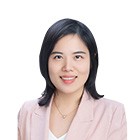Video
Publications
Issue Briefs
Publications | Issue Briefs
Europe’s Shifting Security Landscape and Implications for South Korea
Kim Saeme
3,9342025.05.29
The second Trump administration’s posture toward Europe has brought to the forefront a long-standing debate concerning Europe’s capacity to assume greater responsibility for its own security and defense. While the debate on Europe’s strategic autonomy had continued since the end of the Cold War, it often lacked sustained political momentum. Russia’s annexation of Crimea in 2014 injected a sense of urgency into the discussion but substantive action was deferred until Russia’s invasion of Ukraine in 2022. Central to the debate is the credibility of the United States (U.S.) security commitment to the North Atlantic Treaty Organization (NATO) on the one hand, and the varying threat perceptions among European states on the other.
These developments have major implications for South Korea. The uncertainty surrounding U.S. security commitments in Europe raises questions about the future trajectory of U.S. foreign policy more broadly. To elaborate, shifts in the degree of U.S. engagement in Europe could be a temporary recalibration under the second Trump administration or it could signal the start of a path towards isolationism. Alternatively, it could reflect a reorientation of U.S. strategic focus away from Europe and towards the Indo-Pacific. For South Korea, how the security landscape evolves in Europe will affect its own foreign policy calculations. In this context, this Asan Issue Brief analyzes the shifts in Europe’s security landscape and identifies key lessons for South Korea.
The views expressed herein do not necessarily reflect the views of the Asan Institute for Policy Studies.

Kim Saeme
Associate Research Fellow
Dr. Kim Saeme is an associate research fellow in the Center for Foreign Policy and National Security at the Asan Institute for Policy Studies. Her research focuses on South Korea-Europe relations, multilateral cooperation in the Indo-Pacific, and middle power diplomacy. Dr. Kim is a non-resident fellow at the Korea Economic Institute of America. She was previously a resident fellow at the Royal United Services Institute and a resident fellow at Pacific Forum International. Dr. Kim received her PhD in international relations from King’s College London, her MSc in international relations from the London School of Economics and Political Science, and her BA from Ewha Woman’s University.
view more


